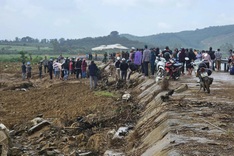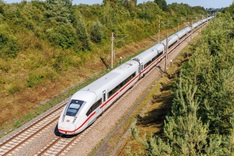As international businesses look to create new links in the global supply chain, Vietnam, as well as the rest of the Southeast Asia region, can emerge as a major destination for foreign direct investment (FDI), said economists and policymakers.

Lê Hữu Phúc, who is a commercial counsellor at Vietnam’s Embassy in Thailand, said the investment shift had been closely linked to FDI activities, having produced significant and transformative impacts on the country’s national socio-economic development.
Phúc said the investment inflow sped up Vietnam’s industrialisation and economic growth and highlighted the country’s effort to integrate into the global supply chain network.
He said that as investments in the Renewal era once played a large part in spurring Vietnam’s national development, current changes to the global supply chain network might open up opportunities for the country to break into highly sophisticated fields, including semiconductor and software.
There would be more opportunities for Vietnamese companies to connect and work with international businesses and engage more deeply in the global network to facilitate the transfer of technical know-how and in training a skilled labour force.
A strong investment inflow would also encourage further improvements in infrastructure, including better road networks, ports, airports and logistics facilities, as well as energy and telecommunications infrastructure, benefiting the entire economy. As advanced technologies are being introduced to Vietnam, especially in manufacturing, as new business models, they would help drive innovation and enhance efficiency in various industries. In addition, the expansion of production supply chains would likely boost the country’s exports, helping to balance its trade.
He said the Vietnamese Government had been introducing policies to attract more FDI with top priorities such as improving the business environment, enhancing infrastructure, supporting small and medium enterprises and promoting sustainability.
An article in Singapore’s The Business Times says the supply chain shift to ASEAN economies continues to gain momentum thanks to strong inflows of foreign direct investment into the region. Between 2011 and 2021, exports from the six largest ASEAN countries grew by 41 per cent, significantly outpacing the global export growth of 22 per cent.
The emergence of trade agreements like the Regional Comprehensive Economic Partnership (RCEP), which includes ASEAN countries and major Asia-Pacific economies, has further facilitated trade flows and supply chain connections throughout the region. Relatively low labour costs in ASEAN have been a significant factor in driving the supply chain shift to the region.
Director-general of the International Investment Research Institute, Lê Anh Dũng, said Vietnam was well-positioned to integrate deeper into the global supply chain network, thanks to its stable macro environment and dynamic economy.
As the country continues improving its business environment and infrastructure, a young educated workforce, combined with still relatively low labour costs would help make Vietnam an attractive destination for foreign investments.
He advised the Government to speed up the digital transformation, develop strong brands and focus on training and education as the cornerstones of long-term growth within the global supply chain network. Businesses should take advantage of the numerous free trade agreements signed by Vietnam, which open up access to major markets including the EU, Japan and Australia.




















